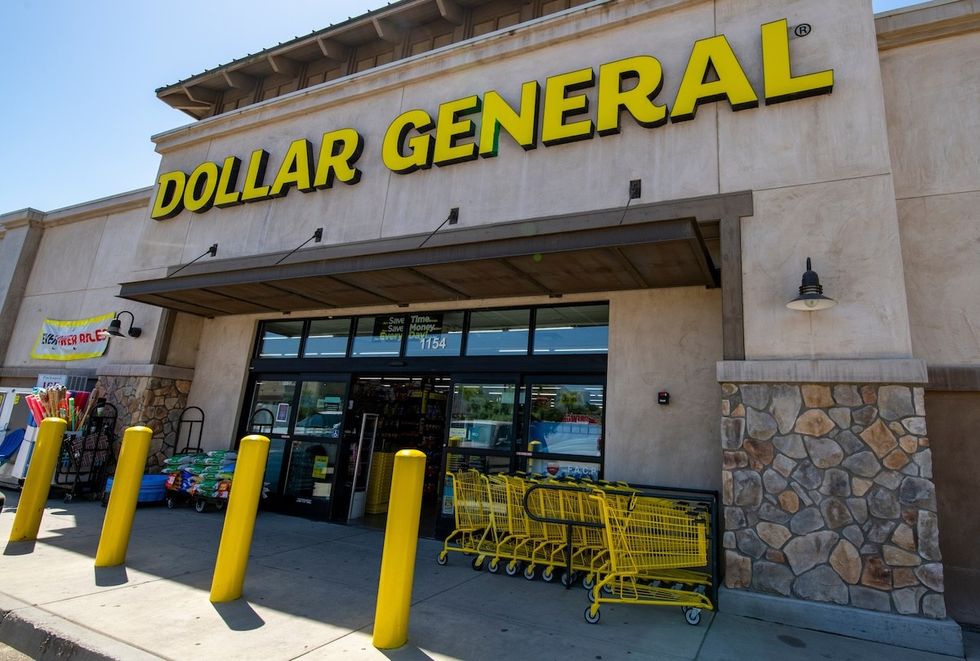For so many of us, carrying cash around is a thing of the past. And when we do need to have it on us, going to the bank to avoid pesky ATM fees can be just another annoying errand. That’s why the option to get cash back at grocery stores, drugstores, and even dollar stores is so convenient. However, a new report says Kroger, Dollar Tree, and Dollar General have been “exploiting” customers who ask for cash back when using a debit or pre-paid card, charging them hidden “junk fees” that range from 50 cents all the way to $3 per transaction.
RELATED: Dollar General Under Fire for Seriously Overcharging Shoppers.
The Consumer Financial Protection Bureau (CFPB) conducted the analysis, which found that these three companies and their subsidiaries (Family Dollar, Ralph’s, and Fred Meyer, to name a few of the largest stores) are charging customers more than $90 million in fees annually.
According to the bureau, this is directly affecting those “in banking deserts and in areas where banks and ATM operators charge significant fees.”
“While retail chains had long provided cash back on debit card purchases for free, the CFPB has found that dollar store chains and other retailers are now charging fees for access to cash,” said CFPB Director Rohit Chopra in a statement. “Many people living in small towns no longer have access to a local bank where they can withdraw money from their account for free. This has created the competitive conditions for retailers to charge fees for cash back.”
This is especially true of Dollar General and Dollar Tree: “Dollar stores are prevalent in rural communities, low-income communities, and communities of color—the same communities who may also face challenges in accessing banking services,” states the report after compiling research on the companies’ locations throughout the U.S.
At Dollar General, the maximum cash-back withdrawal is $40, and the corresponding fee is between $1 and $2.50, says the CFPB. At Dollar Tree and Family Dollar, the maximum is $50, with a $1 and $1.50 fee, respectively.
At Kroger and its subsidiaries, customers can withdraw up to $300 (save for Harris Teeter stores, where it’s $200). The grocery chain charges 50 cents for withdrawal amounts under $100 and $3.50 for those above $100 (at Harris Teeter, it’s 75 cents and $3).
RELATED: Kroger Is Adding Receipt Checks to Several Stores.
The CFPB writes in its report that these retailers may be “exploiting” their customers through these hidden fees. They also note that, in the case of the dollar stores, the low maximum withdrawal amounts are yet another hindrance to consumers: “These fees combined with the constrained withdrawal amount may mean that the fee takes up a hefty percentage relative to the amount of cash withdrawn, and people may be less able to limit the impact of the fee by taking out more cash.”
By comparison, the CFPB also analyzed the cash-back practices of Albertsons, Walgreens, CVS, Walmart, and Target and found that they charge no fee for withdrawals.
A spokesperson for Dollar General told CNBC that its cash-back offering provides customers a cheaper option than ATM fees. “While not a financial institution, Dollar General provides cashback options at our more than 20,000 stores across the country as a service to customers who may not have convenient access to their primary financial institution,” the spokesperson said.
Spokespeople for Kroger and Dollar Tree had not responded to CBNC’s request for comment at the time of writing.
“You’d think they’d see this as a free way to get customers: coming into [the] store because the bank branch isn’t there,” Adam Rust, director of financial services at the advocacy group Consumer Federation of America, told CNBC. “Instead they’re going ahead and charging another junk fee.”

